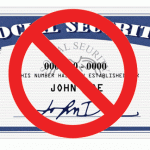Please Log in to view this content.
Build Corporate Credit for your Home Based Business
 One of my friends recently asked me whether or not he can build corporate credit for his home based business. After asking a few simple questions there was really only one obstacle that was preventing him from starting which was the legal structure of the sole proprietorship that he chose for his company.
One of my friends recently asked me whether or not he can build corporate credit for his home based business. After asking a few simple questions there was really only one obstacle that was preventing him from starting which was the legal structure of the sole proprietorship that he chose for his company.
Unfortunately, this happens to be the most common choice among home based businesses. Normally you don’t pay anything to start a sole proprietorship. Of course you don’t get anything, either.
Unless you count the following as valuable business assets:
* Lots of personal liability
* No protection from your business creditors
* An increased risk of being audited
* Problems with valuation for a subsequent sale of the business
The reason for this lack of protection is because a sole proprietorship is not considered a separate legal structure. Instead, it is considered a personal extension of you and because this business types is considered a personal extension of you, you don’t have any protection from it.
In addition, you can’t establish corporate credit separate from your personal credit with a sole proprietorship. In order to build company credit you will need to first incorporate your home based business and next obtain an employee identification number (EIN).
This step by far is the most important because it’s the foundation for what you will build business credit upon. Not to mention all the other important areas that entity selection affects such as taxes, liability and asset protection.
Once you incorporate your business and have obtained an employee identification number you will then need to complete the standard corporate conformity guidelines that creditors expect your business to complete. There are over twenty specific tasks that I review with our members prior to setting up their business credit file and applying for vendor credit lines to build their corporate credit.
Now if you’re wondering why your home based business would need this credit information first ask yourself the following questions:
Do I use my personal credit cards to pay for my home based business expenses?
Do I purchase goods and services from other businesses using my personal credit in order to operate and grow my home based business?
Do the credit card charges I incur for my home based business show up on my personal credit reports?
When you build business credit you have the unique opportunity to obtain business credit cards with no personal guarantee. Best of all when you use these cards for your home based business expenses they don’t affect your personal credit reports!
Some other benefits include:
- Business credit cards have much higher limits than personal credit cards.
- You can build companycredit even if you have bad personal credit
- Reduce your tax burden and improve accounting
If you’ve been doing business up to now without a business structure, both the IRS and your state government defaults your business into a sole proprietorship.
And that means you’re exposed.
Now is the time to select the proper business structure for your home based business if you want to establish corporate credit and you want to protect yourself from personal liabilities.
To access corporate credit insider secrets, premium vendors, leasing companies, business credit cards, and lenders that report to all the major business credit bureaus become a member of my Business Credit Insider’s Circle. Submit your name and email below for details and receive a free audio seminar ($597 value) =>
Marco Carbajo is a business credit specialist, author, speaker, and founder of the Business Credit Insiders Circle. He is a weekly columnist for Dun & Bradstreet Small Business Solutions, a business credit blogger for All Business & American Express Small Business and author of “Eight Steps to Ultimate Business Credit” and “How to Build Business Credit with No Personal Guarantee.” His articles and blogs have also been featured in Business Week, The Washington Post, The San Francisco Tribune, Scotsman Guide, Alltop, Entrepreneur Connect, and Active Rain.
How Business Credit Ratings Size Up to Personal Credit Ratings
 Similar to your personal credit rating, businesses also have a business credit rating that potential lenders use to determine its credit worthiness. Unlike the FICO® credit score, there is no universal scoring system lenders use for determining the credit worthiness of a business.
Similar to your personal credit rating, businesses also have a business credit rating that potential lenders use to determine its credit worthiness. Unlike the FICO® credit score, there is no universal scoring system lenders use for determining the credit worthiness of a business.
While the majority of lenders utilize FICO® for basing the credit worthiness of a consumer when it comes to businesses lenders take many other factors into consideration. This includes but not limited to your business credit score, company size, annual sales, classification, years in business and financials.
Where a personal credit rating is based on financial information provided by credit card companies, retail establishments, financial institutions and public records a business credit rating is determined by information supplied by the business owner and data gathered from lenders, vendors, suppliers, and other trade accounts.
For this reason, potential lenders may be different from one another in their evaluation of your business’ credit history by emphasizing certain qualifications more than others. Like most industries, there is a specialized language involved with business credit ratings.
The following is a sample of the most common terms used as well as their definitions from Dun & Bradstreet (a business credit bureau):
- Average High Credit / Highest Credit –In order to put a business’s credit in perspective, these are based on the total amount of credit owed as compared to the industry as a whole.
- Business in Good Standing –Includes any problems with the business overall.
- Commercial Credit Score –A score that predicts the chance of an account becoming severely delinquent within one year.
- Comprehensive Report –This is a report that includes a combination of several D&B business credit reports painting a more complete picture of your company’s credit history. It includes the results of your PAYDEX analysis, the company’s credit score and Financial Stress class, as well as any public filings or liens, the business’s history and operations (including when it filed for incorporation, annual financial statements, facilities, affiliations, and number of employees).
- Credit Score Class –This is part of the D&B assessment that gauges payment habits to determine how likely it is that a potential account will be delinquent in the next 12 months. The scoring can range from 1 to 5 with 1 being the score assigned for the lowest risk and 5 for the highest.
- Financial Stress Score –This is part of the D&B assessment that analyzes the Financial Stress that a business is experiencing in order to predict how likely it is that a business will fail in the next 12 months.
- PAYDEX –This is D&B’s primary assessment that analyzes how likely it is that a company will make its future payments on time. Having a paydex score of 80 for a business can be compared to having a 720 personal credit score. In order to generate a paydex you will need to have a minimum of four trade experiences reporting on your DNB file.
Here are a few sample business credit reports:
Dun & Bradstreet business information report sample
Dun & Bradstreet enhanced comprehensive report sample
Corporate Experian Business Credit Score Report sample
Small Business Equifax Commercial Credit Report sample
To order your business credit reports:
Equifax Small Business Enterprise
Experian SmartBusinessReportsTM
I also encourage you to familiarize yourself with the top ten business credit bureaus in the industry. It’s important that you understand your business credit rating and what you can do to build a stronger business credit file. This will enable your business to obtain the financing it needs at the best available rates.
To access business credit insider secrets, premium vendors, leasing companies, business credit cards, and lenders that report to all the major business credit bureaus become a member of my Business Credit Insider’s Circle. Submit your name and email below for details and receive a free audio seminar ($597 value) =>
To Your Success!
Marco Carbajo
About the Author
Marco Carbajo is a business credit specialist, author, speaker, and founder of the Business Credit Insider’s Circle. He is a weekly columnist for Dun & Bradstreet Small Business Solutions, a business credit blogger for All Business & American Express Small Business and author of “Eight Steps to Ultimate Business Credit” and “How to Build Business Credit with No Personal Guarantee.” His articles and blogs have also been featured in Business Week, The Washington Post, The San Francisco Tribune, Scotsman Guide, Alltop, Entrepreneur Connect, and Active Rain.
Start Building Business Credit: No Personal Credit and No Guarantee!

Start Building Business Credit
You can start building business credit rather quickly by applying for vendor credit lines. There are companies that are willing to extend credit to your business with no personal credit check or guarantee. Even if your company has no credit history you can get approved but expect limited terms and low credit limits initially.
The benefit to building business credit using vendor credit lines is that it will provide your business with thousands of dollars in products it needs and allow it to pay the invoices at a later date. This helps you conserve cash flow for more critical short term needs your business may have.
Another benefit is vendors report your positive payment experience to the business credit bureaus. The more vendors you establish credit lines and payment experience with the stronger the business credit profile you will build. This alone can positively impact the size of the credit limit recommendation for your business which is determined by the business credit bureaus and publicly disclosed on your file.
However, one of the biggest mistakes made by small business owners is assuming that every vendor reports their payment history. Currently there are over 500,000 vendors who extend lines of credit to businesses but less than 6,000 report your payment experience.
So when you start building your business credit file you want to be sure to select vendors that report. You can verify this by inquiring with a vendor that you plan to apply with. Be sure to ask what business credit agency they report to and how often they report.
One of my favorite aspects to vendor credit lines is the minimal qualifications required for approval. In many cases an application only requires your business contact information, Federal Tax ID#, Dun & Bradstreet#, authorized name and signature and not your social security number or personal guarantee.
The specific vendors requesting only this information will pull a business credit report to base their approval which makes obtaining vendor credit lines much easier and more convenient compared to credit cards or loans. A prime example of one of these types of vendors is a company called Quill.
Quill offers a net 30 account and reports to Dun and Bradstreet. Best of all they report your payment history every 30 days. For small orders you can start building business credit if your business has a listing on the 411 directories and a working website. New businesses can start out with smaller limits that will increase when you pay on time every month.
I also encourage every one of my client’s to join my Business Credit Insider’s Circle. As a member they gain access to all the information, sources, videos, audios, and content not available to the general public. In addition each month we report their membership payments to Dun and Bradstreet!
As you can see vendor credit provides a way to showcase your business’s ability to properly handle its financial obligations, face scrutiny, and show responsibility while maintaining a reasonable debt to income ratio. So start building business credit today and avoid the use of your personal credit and guarantee.
To access business credit insider secrets, premium vendors, leasing companies, business credit cards, and lenders that report to all the major business credit bureaus become a member of my Business Credit Insider’s Circle. Submit your name and email below for details and receive a free audio seminar ($597 value) =>
Marco Carbajo is a business credit specialist, author, speaker, and founder of the Business Credit Insider’s Circle. He is a weekly columnist for Dun & Bradstreet Small Business Solutions, a business credit blogger for All Business & American Express Small Business and author of “Eight Steps to Ultimate Business Credit” and “How to Build Business Credit with No Personal Guarantee.” His articles and blogs have also been featured in The Scotsman Guide, Alltop, Entrepreneur Connect, and Active Rain.
Business Credit Building Time Table
Please Log in to view this content.
- « Previous Page
- 1
- …
- 88
- 89
- 90
- 91
- 92
- …
- 105
- Next Page »